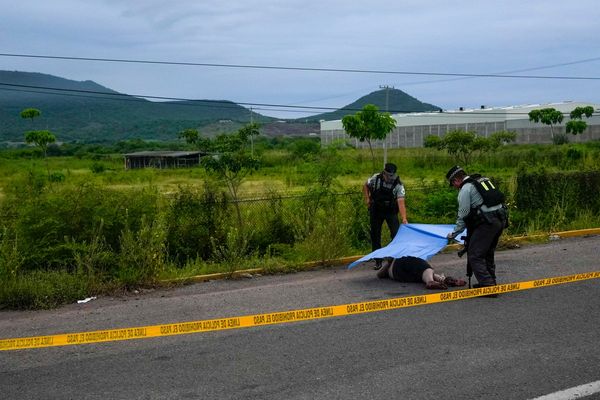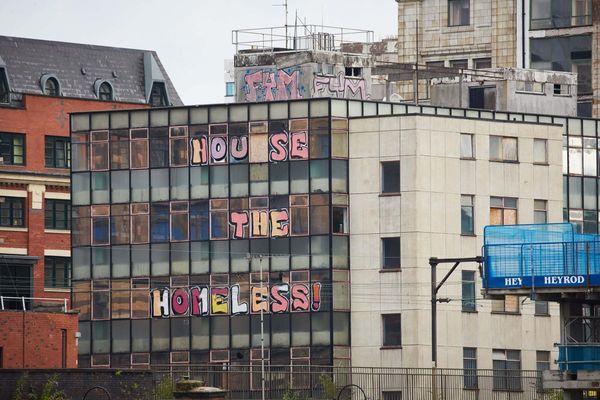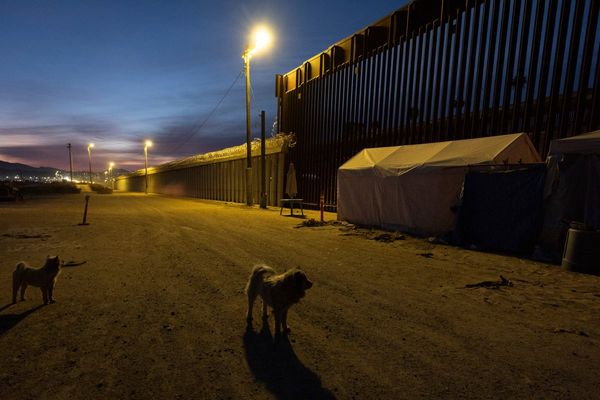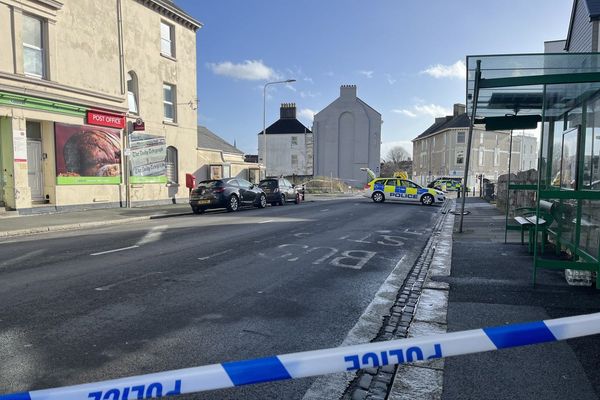
Tarhuna (Libya) (AFP) - For years, a family clan that kept lions to sow terror in the Libyan town of Tarhuna tortured and killed hundreds of people, then dumped their bodies in mass graves.
Now, the six Kani brothers and their militiamen are gone, either dead or in hiding, but the survivors in this western town are still waiting for justice.
Eleven years after the toppling of dictator Moamer Kadhafi plunged the North African country into chaos, they have been left to mourn their loved ones, 260 of whom have been discovered in row upon row of graves.
Today, 60-year-old Ghazla Ali Ounis sits outside her house, surrounded by her orphaned grandchildren whose parents were killed by the Kani family.
"The people who killed my brothers and my sons, I want to catch them alive," said the grieving woman who lost 11 male relatives to the militia.
The Kani brothers and their gunmen first seized the town in 2015 and set about systematically silencing rivals.Lions they kept were rumoured to be fed on the flesh of their enemies.
For a time, the group called the "Kaniyat" sided with militias based in the capital Tripoli, 80 kilometres (50 miles) away.
But when eastern-based military strongman Khalifa Haftar in 2019 launched an assault to seize the capital, the clan switched sides and offered him Tarhuna as a rear base.
When Haftar's forces were routed a year later, the Kani brothers disappeared -- some are believed killed, others to be in hiding.
The town then began the search for the mass graves, desperate to find signs of the many disappeared.
In December 2019, armed men in khaki uniforms had dragged away four of Ounis's sons and seven of her brothers.
"They ambushed them in their sleep and took them away by force," she said."I never saw them again."
All were tortured to death, she said.
'Long-haired criminals'
Her nephew, Walid al-Romani, remembers when his father was abducted by "long-haired criminals".
"They encircled the house, beat him up and took him away," the 15-year-old said.
"I heard one of them say 'mission accomplished' into a walkie-talkie before they disappeared.
"Where's the justice system, the state, punishment?" he asked.
Behind him, old car engines belonging to his father, who was a mechanic, rusted amid piles of scrap metal.
Tarhuna residents say they feel an aching sense of injustice, and pain over being abandoned by a state that has provided no compensation and only arrested very few of the killers.
Three of the brothers, including leader Mohamed Al-Kani, have been killed, but the other three remain at large, residents say.
They are rumoured to be hiding out in the eastern city of Benghazi or further afield in Egypt or Jordan, people in Tarhuna say.
Despite arrest warrants issued by Tripoli prosecutors, "there have been no arrests, and the killers are on the run," said Ounis.
She said she had tried to meet Libya's unity Prime Minister Abdulhamid Dbeibah to discuss the issue, but that "he didn't want to receive me".
'Lots of horrors'
On the edge of Tarhuna, men armed with spades chip away at the hard ochre earth as they search for more bodies in a suspected mass grave.
Residents are still holding funerals for loved ones extracted from newly-discovered graves.
So far, 260 bodies have been recovered.
Ahmed Ferrara, head of operations at Libya's authority for the disappeared, said his department was "seriously lacking resources".
Libya expert Jalel Harchaoui said civilians in the North African country had experienced "lots of horrors" between 2014 and 2019.
"Most of the perpetrators are still free today, even sometimes taking part in political life as if they were innocent," he said.
Meanwhile Ashraf Jaballah, 35, is impatiently waiting for justice.
In December 2019, he was attending a funeral when Kani fighters attacked him and his relatives.
"We tried to resist but there were so many of them," he said.
Ten of his relatives were taken away to an unknown location.
All would later be identified in mass graves.
He says that when the grave was discovered, the shock put him in hospital.
"They burned down our houses, stole our belongings," said Jaballah."The state has still done nothing."







